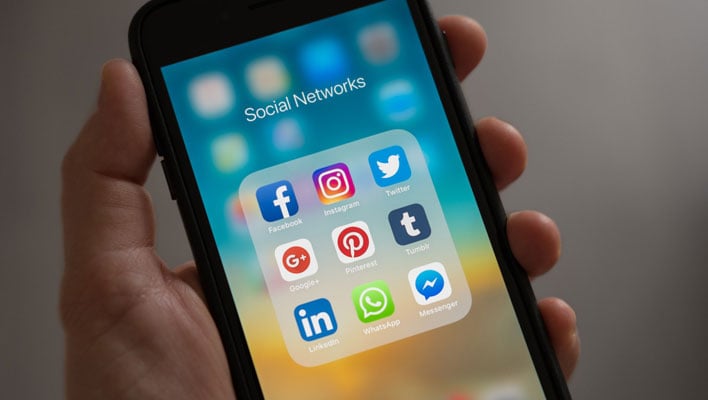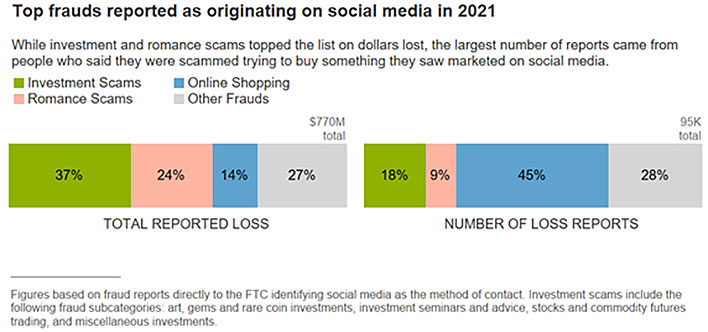FTC Warns Social Media Is A Gold Mine For Scams As Losses Tallied $770M In 2021

Remember what life was like before the advent of social media? Such a time feels like ancient history, and many people these days juggle multiple social media accounts, such as Facebook, Twitter, Instagram, and a host of others. They're all super popular, and so it's no surprise that the Federal Trade Commission (FTC) has labeled social media a gold mine scammers.
The unflattering designation headlines a new report outlining a startling rise in fraud on various social media platforms. According to the FTC, more than 95,000 people reported being swindled out of $770 million last year. That represents an 18-fold increase over 2017, and that $770 million figure accounts for 25 percent of all reported losses to fraud.
"The largest number of reports came from people who lost money to online shopping scams. Most of the reports about online shopping scams involved someone who ordered a product they saw marketed on social media that never arrived. Consumers who listed the social media platform where the undelivered products were marketed most often named Facebook or Instagram," the FTC said.
If you use Facebook, you've likely seen ads tailored to your browser history and activity on the social network. For example, if you're researching chef knifes, it wouldn't be unusual to then see cutlery ads appear on your feed. Speaking from experience there. Also speaking from personal experience, I've seen shady ads for knockoff sports jerseys, with sites made to resemble authentic vendors of sports attire. Pretty sure that $10 jersey I saw was not actually sanctioned by the NFL.

Source: FTC
Unfortunately, the FTC's report doesn't burrow into the topic with specific examples, and instead provides a high-level overview of various scams. It's not just online shopping, either. The report mentions a "massive surge" in reports of "bogus cryptocurrency investments," followed by romance scams being the next most profitable.
"Losses to romance scams have climbed to record highs in recent years. More than a third of people who said they lost money to an online romance scam in 2021 said it began on Facebook or Instagram. These scams often start with a seemingly innocent friend request from a stranger, followed by sweet talk, and then, inevitably, a request for money," the FTC said.
The FTC offers some tips on how to avoid being scammed, though it pretty much amounts to preaching to the choir. Things like limiting who can see your posts, opting out of targeting advertising, slowing your roll if someone online wants to rush into a relationship, and so forth.

